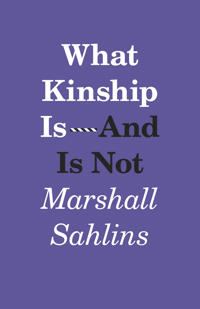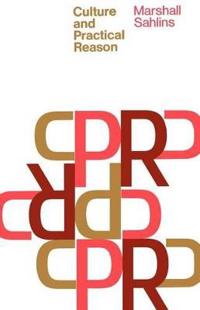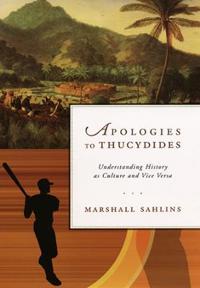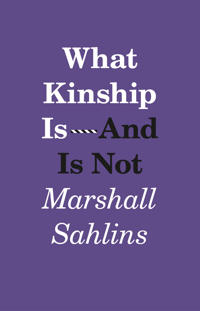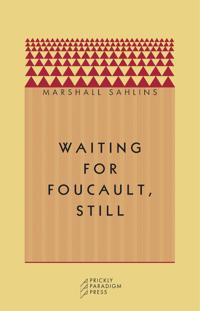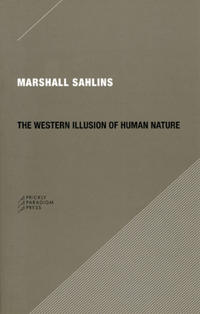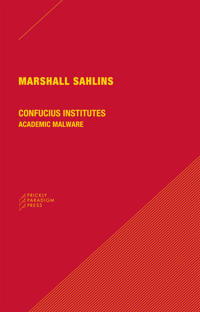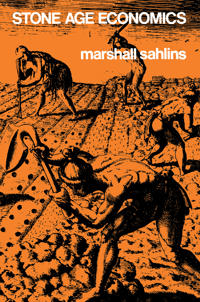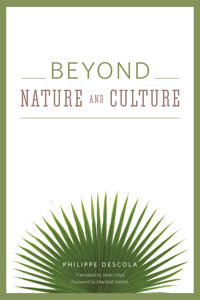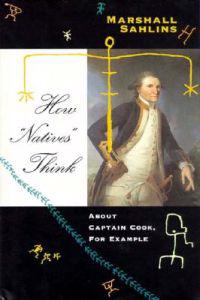What Kinship is-and is Not (Häftad)
avMarshall Sahlins
ISBN: 9780226214290 - UTGIVEN: 2014-09What Kinship Is-And Is Not offers, on its surface, a simple theoretical argument, laid out in the titles of its mere two chapters: kinship is culture, not biology. But along the way to proving his point, Marshall Sahlins engages a dazzling array of thinkers, from Aristotle to Emile Durkheim to Maril[...]
Culture and Practical Reason (Häftad)
avMarshall Sahlins
ISBN: 9780226733616 - UTGIVEN: 197802"The main thrust of this book is to deliver a major critique of materialist and rationalist explanations of social and cultural forms, but the in the process Sahlins has given us a much stronger statement of the centrality of symbols in human affairs than have many of our 'practicing' symbolic anthr[...]
Apologies to Thucydides (Inbunden)
avMarshall Sahlins
ISBN: 9780226734002 - UTGIVEN: 200501Thucydides' classic work on the history of the Peloponnesian War is the root of Western conceptions of history--including the idea that Western history is the foundation of everyone else's. Here, Marshall Sahlins takes on Thucydides and the conceptions of history he wrought with a groundbreaking new[...]
What Kinship is - and is Not (Inbunden)
avMarshall Sahlins
ISBN: 9780226925127 - UTGIVEN: 201302In this pithy two-part essay, Marshall Sahlins reinvigorates the debates on what constitutes kinship, building on some of the best scholarship in the field to produce an original outlook on the deepest bond humans can have. Covering thinkers from Aristotle and Levy-Bruhl to Emile Durkheim and David [...]
Stone Age Economics (Häftad)
avMarshall Sahlins
ISBN: 9780415320108 - UTGIVEN: 200311Stoneage Economics is a classic of economic anthropology, ambitiously tackling the nature of economic life and how to study it comparatively. This collection of six influential essays is one of Marshall Sahlins' most influential and enduring works, claiming that stone age economies formed the origin[...]
Waiting for Foucault, Still (Häftad)
avMarshall Sahlins
ISBN: 9780971757509 - UTGIVEN: 200209First devised as after-dinner entertainment at a decennial meeting of the Association of Social Anthropologists in Great Britain, and first published by Prickly Pears Press in 1993, this expanded edition of "Waiting for Foucault" represents some of the brightest anthropological satire - mixed in wit[...]
The Western Illusion of Human Nature (Häftad)
avMarshall Sahlins
ISBN: 9780979405723 - UTGIVEN: 200808Reflecting the decline in college courses on Western Civilization, Marshall Sahlins aims to accelerate the trend by reducing "Western Civ" to about two hours. He cites Nietzsche to the effect that deep issues are like cold baths; one should get into and out of them as quickly as possible. The deep i[...]
Confucius Institutes (Pocket)
avMarshall Sahlins
ISBN: 9780984201082 - UTGIVEN: 2014-11In recent years, Confucius Institutes have sprung up on more than four hundred and fifty campuses worldwide, including nearly one hundred across the United States. At first glance, this seems like a benefit for everyone concerned. The colleges and universities receive considerable contributions from[...]
Stone Age Economics (Häftad)
avMarshall David Sahlins
ISBN: 9780202010991 - UTGIVEN: 197212Ambitiously tackling the nature of economic life and how to study it comparatively, Stone Age Economics includes six studies that reflect the author's ideas on revising traditional views of hunter-gatherer and so-called primitive societies, revealing them to be the original affluent society. When it[...]
Beyond Nature and Culture (Pocket)
avPhilippe Descola, Janet (TRN) Lloyd, Marshall (FRW) Sahlins
ISBN: 9780226212364 - UTGIVEN: 2014-10Successor to Claude Levi-Strausa at the College de France, Philippe Descola has become one of the most important anthropologists working today, and Beyond Nature and Culture has been a major influence in European intellectual life since its publication in 2005. Here, finally, it is brought to Englis[...]
How "Natives" Think (Inbunden)
avMarshall David Sahlins
ISBN: 9780226733685 - UTGIVEN: 1995-05When Western scholars write about non-Western societies, do they inevitably perpetuate the myths of European imperialism? Can they ever articulate the meanings and logics of non-Western peoples? Who has the right to speak for whom? Marshall Sahlins addresses these issues, while building a case for t[...]
How "Natives" Think (Pocket)
avMarshall David Sahlins
ISBN: 9780226733692 - UTGIVEN: 1996-10When Western scholars write about non-Western societies, do they inevitably perpetuate the myths of European imperialism? Can they ever articulate the meanings and logics of non-Western peoples? Who has the right to speak for whom? Questions such as these are debated in this text. Marshall Sahlins a[...]
Culture in Practice (Pocket)
avMarshall David Sahlins
ISBN: 9780942299380 - UTGIVEN: 2005-10-01"Culture in Practice" collects the academic and political writings from the 1960s through the 1990s of anthropologist Marshall Sahlins. More than a compilation, "Culture in Practice" unfolds as an intellectual autobiography. The book opens with Sahlins's early general studies of culture, economy, an[...]

